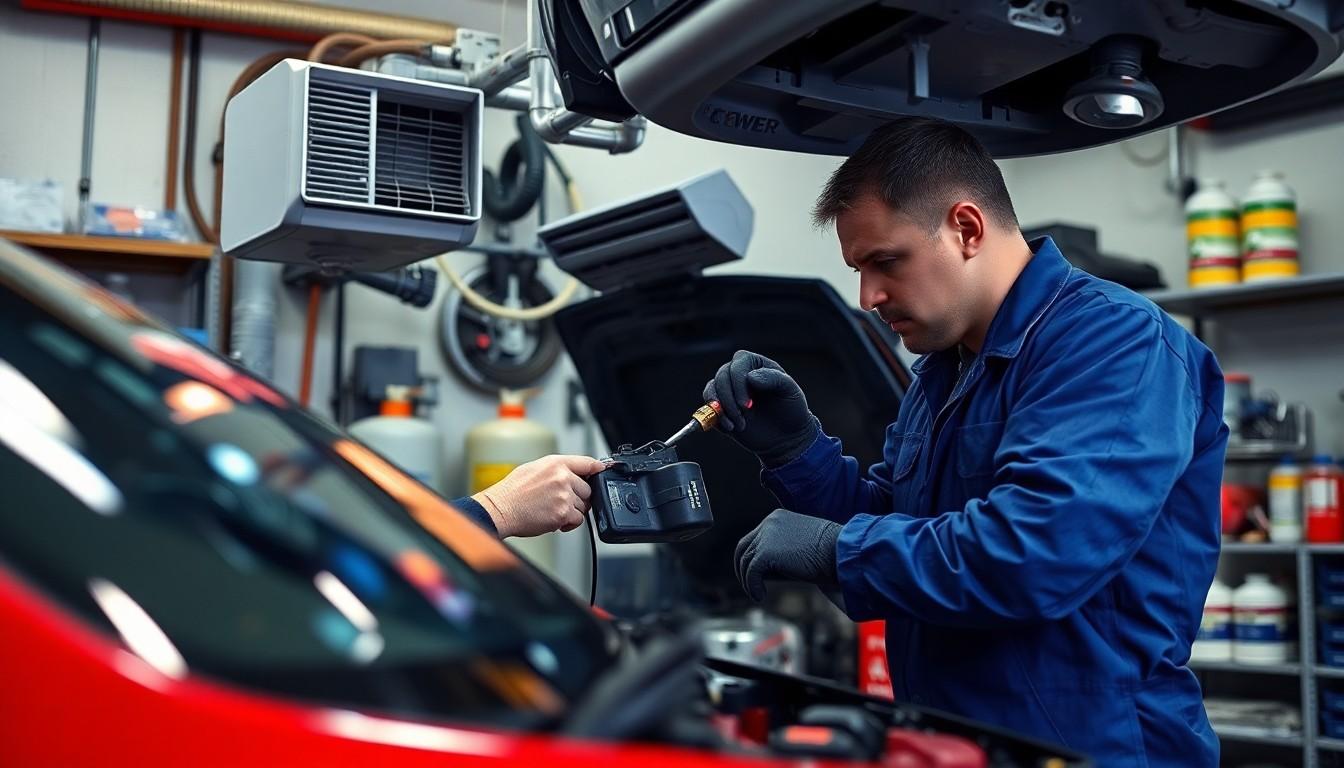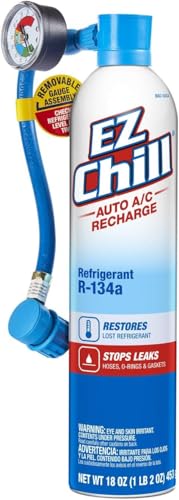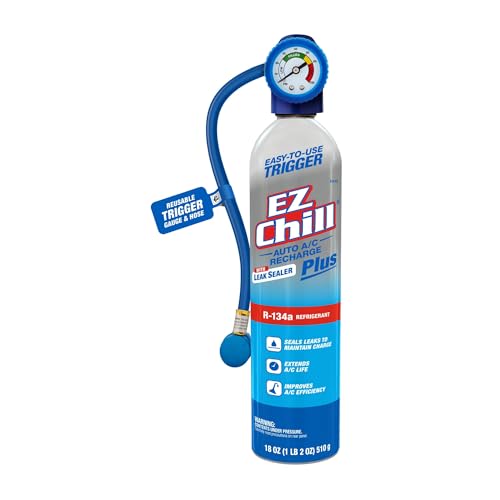Is your car’s AC blowing warm air during hot summer days? You’re not alone. When car air conditioning systems lose their cooling power, it’s usually because they need a refrigerant recharge—but many vehicle owners worry about the costs involved.
We’ll break down exactly what you can expect to pay when recharging your car’s AC system. From DIY options that might save you money to professional service costs, we’ve researched the factors that influence pricing across different vehicle makes and models. Understanding these costs upfront helps you make an well-informed choice without any surprise expenses.
Understanding Car AC Recharge Costs
Car AC recharge costs typically range from $100 to $300 for professional service, while DIY kits cost between $20 and $75. Several factors influence these prices, including your vehicle type, refrigerant quality, and whether additional repairs are needed.
Most modern vehicles use R-134a refrigerant, costing about $50 per pound, while newer models require R-1234yf, which runs approximately $100-150 per pound. Labor charges add $70-150 to your total bill, depending on your location and the shop’s hourly rates.
Many repair shops offer package deals that include system inspection, refrigerant, and basic labor for a flat fee. National chains like Firestone and Pep Boys charge $149-249 for standard AC recharge services, while dealerships often command premium prices between $200-350 for the same service.
The true value comes from proper diagnosis rather than simply adding refrigerant. Low refrigerant usually indicates a leak that needs addressing to prevent repeated recharges. An AC system in good condition should maintain its refrigerant level for years without needing frequent recharges.
Professional diagnosis often includes leak detection using specialized equipment that identifies the exact location of refrigerant loss. These comprehensive services provide longer-lasting results compared to quick refills that only temporarily solve the problem.
Average Cost of Recharging Your Car’s AC System

Car AC recharge costs vary significantly between DIY approaches and professional services. Understanding these price ranges helps vehicle owners budget appropriately for maintaining their cooling systems.
DIY Recharge Kits: $40-$60
DIY recharge kits provide a budget-friendly option for car owners comfortable with handling automotive maintenance themselves. These kits typically cost between $40 and $60, making them considerably less expensive than professional services. Each kit contains refrigerant, a pressure gauge, and hoses needed to refill your system. Owners must exercise caution when using these kits, as improper handling can potentially damage the AC system or result in incomplete recharging. Many auto parts stores carry these kits, which work best for simple refrigerant top-offs rather than addressing underlying issues like leaks or component failures.
Professional Service Costs: $100-$300
Professional AC recharge services offer expertise and comprehensive answers at a higher price point. Standard service fees range from $100 to $300, depending on several factors. Vehicles using the common R134A refrigerant typically cost around $100 for a recharge, while newer models utilizing 1234YF refrigerant can run up to $500 due to the higher cost of this environmentally friendly alternative. Dealership services generally command premium prices between $250 and $500, reflecting their specialized knowledge of exact vehicle models. The professional service advantage includes thorough system inspection, proper refrigerant measurement, and identification of potential problems that might cause future failures. Technicians also add necessary lubricants and can replace worn components during the same service visit, potentially saving money on future repairs.
Factors That Affect AC Recharge Pricing

The cost of recharging your car’s AC system varies based on several key factors. Understanding these variables helps you anticipate expenses and make informed decisions about your vehicle’s maintenance needs.
Type of Refrigerant Required
Refrigerant type significantly impacts the overall cost of an AC recharge. Different vehicles use various refrigerant classes, each with its own price point. Modern cars typically require either R-134a or the newer, more expensive R-1234yf refrigerant. The amount needed also affects the final price, with some systems requiring more refrigerant than others to reach optimal performance levels.
Labor Rates in Your Area
Geographic location plays a crucial role in determining labor costs for AC recharge services. Urban areas and regions with higher costs of living generally command higher service rates compared to rural locations. Professional services in high-demand metropolitan areas might charge premium rates that can increase your total bill by $70-150 depending on local market conditions. Shops in competitive markets sometimes offer seasonal promotions to attract customers during peak AC repair seasons.
Vehicle Make and Model
Your car’s exact make and model directly influences recharge costs. Luxury vehicles often require specialized equipment and more expensive refrigerants, potentially pushing costs up to $550 or more. Complex AC systems found in high-end or newer models typically demand more technical expertise and time to service properly. Foreign and specialty vehicles may have unique system configurations that require exact tools or procedures, further affecting the price. American-made sedans and economy cars generally fall on the lower end of the pricing spectrum compared to European luxury brands or large SUVs with multi-zone climate control systems.
When a Simple Recharge Isn’t Enough

A simple recharge provides only temporary relief if underlying issues exist in your AC system. Many vehicle owners discover that persistent cooling problems stem from leaks or component failures rather than just low refrigerant levels.
Signs of AC System Leaks
AC system leaks manifest through several telltale indicators that shouldn’t be ignored. Reduced cooling performance is the most common symptom, with vents blowing warmer air than normal even though the AC being set to maximum. Visible refrigerant leaks might appear as oily residue around AC components, connections, or underneath your vehicle. Dashboard warning lights or messages sometimes indicate system problems, particularly in newer vehicles with more sophisticated monitoring systems. Unusual noises such as clicking, rattling, or hissing when the AC runs often signal refrigerant escaping from the system. Strange smells emanating from your vents can also indicate refrigerant leaks or other AC system issues that require professional attention.
Component Replacement Costs
Component replacement represents a important expense compared to simple recharges, often necessary when leaks persist. AC compressor replacement typically costs between $500 and $1,500, depending on your vehicle make and model, with luxury vehicles trending toward the higher end. Condenser replacements range from $300 to $1,000, including parts and labor costs. Other critical components like the evaporator, receiver-drier, and orifice tube generally cost between $100 and $500 each, plus additional labor charges. Labor expenses constitute a substantial portion of these costs, varying based on your location and the complexity of accessing these components in your exact vehicle. Professional diagnosis proves essential before proceeding with any component replacement, as mechanics can identify exactly which parts require attention rather than unnecessarily replacing multiple components.
DIY vs. Professional AC Recharge: Pros and Cons

DIY AC Recharge
DIY AC recharging offers a budget-friendly alternative to professional services, with total costs ranging from $80 to $130 for materials. This option requires purchasing the correct replacement refrigerant, charge hose, and gauge kit. Many car owners appreciate the convenience of performing the task at home on their own schedule.
The process involves several technical steps including identifying the correct refrigerant type, locating the low-pressure port, and ensuring the AC compressor is operational. Protective gear such as gloves and safety goggles is essential when handling refrigerants to prevent potential injuries.
Professional AC Recharge
Professional AC recharging services typically cost between $250 and $500, depending on your vehicle and location. These costs break down into approximately $171 to $251 for labor and around $89 for parts. Some service centers offer more competitive pricing, with total costs ranging from $100 to $300.
Mechanics provide comprehensive service beyond just adding refrigerant. They inspect the entire system for leaks, identify underlying issues, and make necessary repairs during the same appointment. Technicians also handle refrigerants safely, minimizing environmental impact and personal risk.
Key Considerations
| Factor | DIY Approach | Professional Service |
|---|---|---|
| Cost | $80-$130 | $250-$500 |
| Safety Risk | High (requires protective gear) | Minimal (handled by experts) |
| Leak Detection | Limited capabilities | Comprehensive inspection |
| Time Investment | Varies based on experience | Scheduled appointment time |
| Long-term Solution | May miss underlying issues | Addresses root causes |
The main advantage of DIY recharging is cost savings, but it comes with important drawbacks. Low refrigerant levels often indicate a leak in the system that DIY methods can’t properly diagnose or fix. Adding refrigerant without addressing the underlying leak creates a temporary solution that requires repeated recharges.
Professional mechanics bring expertise that extends beyond simple refrigerant addition. They’re equipped to identify system leaks, evaluate component condition, and provide permanent answers rather than quick fixes. Their comprehensive approach ensures your AC system operates efficiently for longer periods between services.
How Often Should You Recharge Your Car’s AC?

Car AC systems aren’t designed to need regular recharging. Unlike oil changes or tire rotations, refrigerant recharging isn’t a scheduled maintenance item for your vehicle. The refrigerant in your AC system circulates in a closed loop that shouldn’t leak under normal circumstances.
A properly functioning AC system retains its refrigerant indefinitely. When your car’s AC starts blowing warm air, it’s typically a sign of a leak rather than normal refrigerant depletion. These leaks commonly occur in components like hoses, seals, or the compressor itself.
Adding refrigerant without fixing the underlying leak creates a temporary solution at best. Your system will eventually lose the newly added refrigerant through the same leak, requiring another recharge. Automotive experts emphasize that repeatedly recharging without addressing leaks is environmentally harmful and potentially illegal since refrigerants are regulated substances.
Diagnostic testing by a professional can identify the exact location of leaks in your AC system. Most repair shops use specialized equipment including UV dye tests and electronic leak detectors to pinpoint exactly where refrigerant is escaping.
The most cost-effective long-term solution involves fixing the leak first, then recharging the system. This approach prevents continued refrigerant loss and ensures proper cooling performance throughout your vehicle’s lifetime.
Conclusion
Car AC recharge costs vary widely from $100 to $300 for professional service or $20 to $75 for DIY kits. The price differences stem from your vehicle type refrigerant requirements and potential underlying issues.
We’ve seen that simply adding refrigerant isn’t always the best solution. When your AC blows warm air it typically indicates a leak that needs proper diagnosis and repair. While DIY options may seem cost-effective professional services offer comprehensive inspections that can save you money long-term.
Remember that modern vehicles using R-1234yf refrigerant will face higher costs than older models with R-134a. Whatever option you choose addressing underlying issues rather than repeatedly recharging will keep your car cool and protect your wallet during hot summer months.
Frequently Asked Questions
How much does a car AC recharge cost?
A car AC recharge typically costs between $100-$300 for professional service. DIY kits are cheaper at $20-$75, but lack professional diagnosis. Newer vehicles using R-1234yf refrigerant cost more ($300-$500) than older models using R-134a. National service chains charge $149-$249, while dealerships generally charge $200-$350 for the same service.
Why is my car AC blowing warm air?
Your car AC is likely blowing warm air due to low refrigerant levels, which usually indicates a leak in the system. Other possible causes include a failed compressor, faulty cooling fans, electrical issues, or a clogged expansion valve. Rather than simply recharging, proper diagnosis is important as adding refrigerant without fixing leaks only provides temporary relief.
Can I recharge my car’s AC system myself?
Yes, you can recharge your car’s AC system using DIY kits that cost $40-$60. However, this approach requires basic automotive knowledge and proper safety precautions. DIY recharging risks improper refrigerant levels and doesn’t address underlying issues like leaks. For comprehensive diagnosis and repair, professional service offers better long-term value despite higher upfront costs.
How often should I recharge my car’s AC?
Car AC systems are not designed to need regular recharging. In a properly functioning system, refrigerant circulates in a closed loop and should never deplete. If your AC requires frequent recharging, this indicates a leak that should be repaired. Most vehicles should maintain proper refrigerant levels for many years without service if no leaks are present.
What factors affect the cost of an AC recharge?
Several factors affect AC recharge costs: type of refrigerant (R-134a costs about $50/lb while R-1234yf costs $100-150/lb), vehicle make and model (luxury cars typically cost more), geographic location (urban areas charge higher rates), extent of system damage, and whether additional components need replacement. Labor rates ($70-150) also significantly impact the final price.
How do I know if my car’s AC system has a leak?
Signs of an AC system leak include: reduced cooling performance, visible refrigerant leaks (oily residue around connections), warning lights on your dashboard, unusual noises from the AC unit, and strange smells from the vents. If your AC performance gradually declines over time, this typically indicates a slow leak that should be professionally diagnosed.
Is professional AC service worth the higher cost?
Professional AC service is often worth the higher cost because technicians can properly diagnose underlying issues, accurately measure refrigerant levels, detect and repair leaks, and replace worn components in one visit. While DIY recharging costs $80-$130, it only provides temporary relief if leaks exist. Professional service ($250-$500) offers comprehensive solutions that prevent repeated recharges and system damage.
What additional repairs might I need beyond a simple recharge?
Beyond a simple recharge, you might need repairs for leaking components, compressor replacement ($500-$1,500), condenser replacement ($300-$1,000), evaporator repairs, expansion valve replacement, or electrical system fixes. Each of these components can cost between $100-$500 plus labor. A professional diagnosis will identify which specific repairs your system requires.













